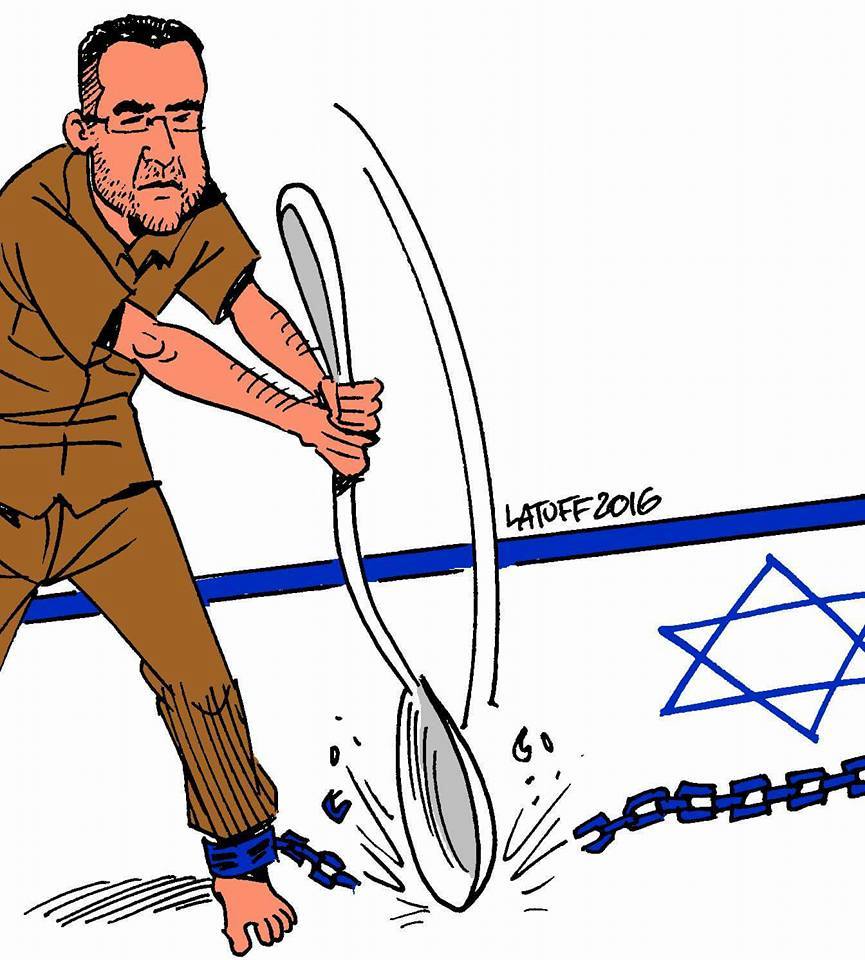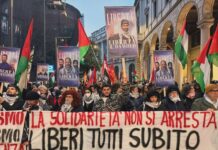 Imprisoned Palestinian journalist Mohammed al-Qeeq announced on Monday evening, 6 February, that he is launching an open hunger strike to demand his release and an end to administrative detention. Earlier on Monday, he was ordered to six months in administrative detention without charge or trial.
Imprisoned Palestinian journalist Mohammed al-Qeeq announced on Monday evening, 6 February, that he is launching an open hunger strike to demand his release and an end to administrative detention. Earlier on Monday, he was ordered to six months in administrative detention without charge or trial.
Al-Qeeq, 34, previously won his release from administrative detention, Israeli imprisonment without charge or trial, with a 94-day hunger strike that drew widespread Palestinian and international attention and highlighted the issue of arbitrary imprisonment and the repression to which Palestinian journalists are subject. He was released in May 2016. Since his release, he has been a vocal activist on prisoners’ rights issues and an advocate for the freedom of Palestinian prisoners.
He was seized by Israeli occupation soldiers on 16 January at the Beit El checkpoint near Ramallah as he returned home from a demonstration in Bethlehem to demand the return of the bodies of Palestinians killed by Israeli occupation forces; their bodies are currently detained by the Israeli state. Since that time, his detention was repeatedly extended as he was held under interrogation; Israeli occupation officials previously announced their intention to accuse him of “incitement” over social media, but apparently failed to produce any evidence or obtain a “confession” from al-Qeeq despite extensive interrogation. He is currently among over 530 Palestinians held without charge or trial under administrative detention. Administrative detention orders are issued on the basis of “secret evidence” and are indefinitely renewable; Palestinians have spent years at a time imprisoned under administrative detention orders.
Al-Qeeq is launching his renewed hunger strike amid an elevated state of tension in Israeli jails. Recent days have included multiple large-scale invasions of prisoners’ cells, ransacking of belongings and mass transfers of prisoners from one prison to another, as well as resistance actions by jailed prisoners in the face of these attacks. The Palestinian Human Rights Organizations Council said: “Over the last few days, IPS special unit forces, called the Metzada, have carried out violent raids in the Nafha and Naqab prisons, both located beyond the Green Line. On 30 January 2017, the Metzada raided section 1 of the Nafha prison, attacking the prisoners and destroying their belongings. The attacks escalated on 1 February when an estimated 400 officers entered sections 2 and 12 of the prison, and carried out a mass search raid and attacked prisoners with tear gas. The officers transferred some of the prisoners to other sections within the prison after one prisoner allegedly attempted an attack. These attacks continued on the morning of 2 February after the IPS closed off all sections of the prison.”
Protests have taken place in multiple Palestinian cities in support of the Palestinian prisoners and the “prison intifada.” Al-Qeeq’s hunger strike is the latest development in this growing struggle inside the prisons. A protest will take place tomorrow morning at 11 am at Manara Square in central Ramallah in support of al-Qeeq and his fellow Palestinian prisoners.
Discover more from Samidoun: Palestinian Prisoner Solidarity Network
Subscribe to get the latest posts sent to your email.




